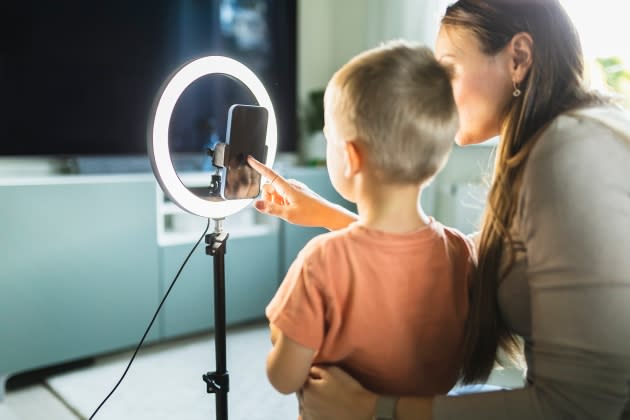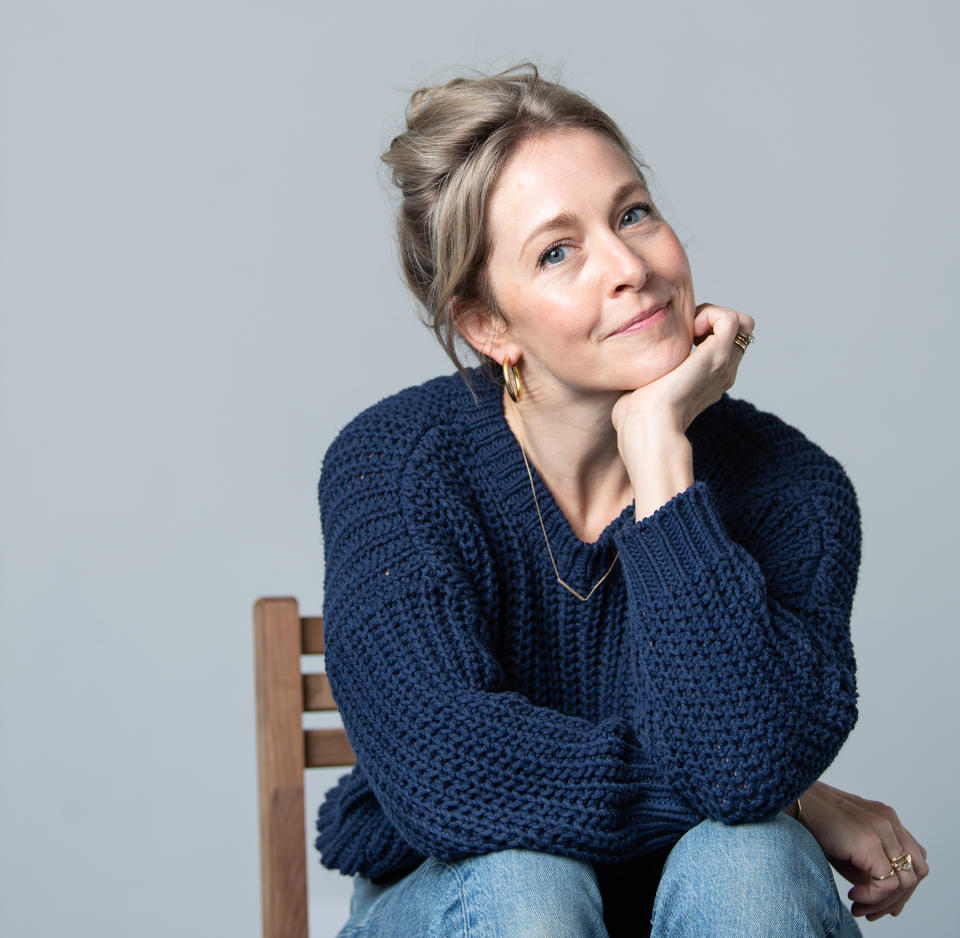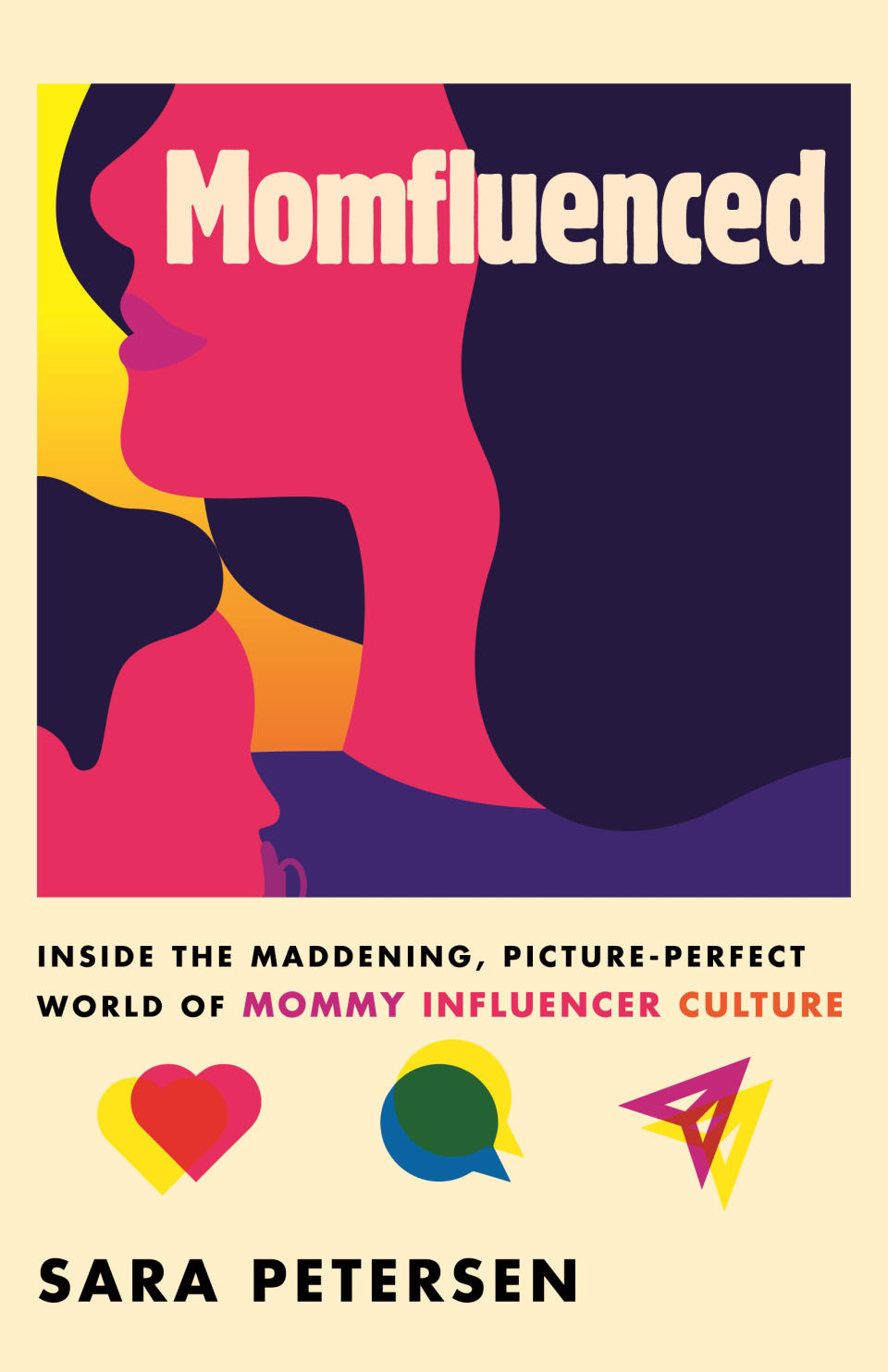‘A Very Specific Flavor of Sh-t’: Why Mommy Influencers Make Us Feel So Bad About Ourselves

On the internet content creator hierarchy, there’s no one more widely reviled than the momfluencer. With her flawless locks and perfectly appointed nursery in various shades of ecru, with nary an errant Lego or Cheerio in sight, she has been a figure of both derision and immense authority, with all other mothers parenting in her indomitable shadow. But even though momfluencers are often subject to mockery, they wield incredible economic power, as parents are a much-coveted advertiser demographic and brands are eager to work with creators who speak directly to them.
With momfluencers omnipresent in the online ecosystem, it’s worth engaging with them on a level beyond mockery, asking who are they and why they matter. This is the central argument put forth by author Sara Peterson’s new book Momfluenced: Inside the Maddening, Picture-Perfect World of Mom Influencer Culture, a dishy yet deeply thoughtful tome that takes a closer look at the real individuals behind the perfectly composed Easter-egg hunt photos and the Smeg #sponcon posts. Peterson casts a wan eye on the momfluencer experience, tracing the roots of the idealized motherhood trope in American history, with the perception of the mother and housewife as “angel in the house,” to the tradwives, anti-vaxxers, and plant-based-soap hawkers we see on our social media feeds today.
More from Rolling Stone
Too Twee or Not Too Twee: Meet the People Behind the Wes Anderson TikTok Trend
They Wrote a Song to Help Them Stop Crying. Now All of TikTok Is Singing Along
What was your gateway drug to momfluencers?
I had been writing about feminism and motherhood for several years. Looking back, that was going to lead me to momfluencer culture. I probably started pitching pieces about my fraught fascination with that culture a few years prior to 2020. I just found that the more I dug into why it felt so fascinating and sort of troubling and alluring all at the same time, the more I was noticing intersecting themes: race, class, capitalism, consumerism, domesticity, ideals for femininity. There was a lot there.
Who was the first big momfluencer that you became obsessed with?
That was Naomi Davis [a blogger who went by Love, Taza on Instagram; she has since deactivated her account]. She just checked so many [boxes]: she was Mormon, and I think many of us are fascinated with Mormonism in general. She was just so joyful and colorful in ways that I consistently struggled to be in my own life as a mom. Her aesthetics were really easy to ingest. Her photos were pretty. But more than anything, I think I wanted to feel lighter and more joyful as a mom, and was either consciously or unconsciously looking to her for tricks or a guidepost to how to get there.

As somebody with a newborn myself right now, I find that I’m sort of actively avoiding mom content, just because it makes me feel so terrible about myself all the time. What effect did it have on you?
I have felt like shit, for sure, consuming this type of content. But it’s always been like a very specific flavor of shit if that makes sense. I don’t think I’ve ever consciously said to myself, “these moms are doing it right. They have all the answers. Their lives are easier than mine.” But I do think I have found myself thinking, “there are some choices they must be making that are impacting their lives in more positive ways. And like maybe I can just tweak something about my daily activity to feel more grounded as a mom.”
Kelly Havens Stickle, an Instagram mom who looks straight out of Anne of Green Gables and consistently posts Bible verses, has an incredibly alluring lifestyle, and I say that even though I view myself as a very progressive parent. Can you explain that push-pull in people’s brains when they look at that type of content?
For me, it comes down to a perceived simplicity that they’re projecting, and a very clear set of rules that they’re following. It obviously gets tangled up in religion as well: Kelly Havens Stickle, for example, is super religious. She’s Christian. But yeah, I love the idea of somebody telling me what to do and how to live. I’ve never found it in my own life. But there’s something so alluring about [it.] It’s the same reason people get drawn into cults: not having to grapple with self-doubt and the hell of decision-making, particularly for moms who have to make so many choices every single day. It feels like it would be such an escape from the fatigue of decision-making.
Do you get culty vibes from some of these women and their followings? Do you think momfluencerdom can be a cult?
Yeah, I always think of Amanda Montell’s book Cultish as a way to think about this. So many things in our life can be cultish. And certainly if a momfluencer is upholding her own authority, despite having very dubious or non-existent credentials, is pointing to one way being the right way, if she’s using coded language to create an “us/them” dichotomy, if she is making money off of her dubious authority, I think those are all red flags in terms of a cultish vibe.
What would you say was the most surprising thing that you learned in researching this book?
It was super illuminating for me to deconstruct the ideal mother that lives in many of our imaginations and to really get clear about where she came from, and the fact that she was culturally constructed by white men in power as a way to maintain power. To know in my guts that she has never existed, that she was never created by mothers, just freed me from wanting to aspire to that.
In your book, you write about how the rise of Betty Crocker was, in a way, meant to sell women on the values of domesticity. You write that you don’t think influencers today necessarily are trying to do that in the same way, but do you think that’s true with the far-right turn our culture is taking now? Is some of this intentional propaganda to bring women back into the domestic space?
A hundred percent. I updated the follower counts of all of the super right wing, anti-vax, white supremacist moms, the trad moms, six months ago, and all of them had risen pretty significantly. I do think it’s like a direct backlash to more progressive moms speaking up about our fed-up-ness, particularly post-pandemic. It’s often framed as their nuclear family ideals are being attacked, or their way of life is on the decline, and as a result, they need to speak up and they need to be truth tellers, and they’re making the radical choice by choosing to be led by the patriarchal figure.
What do you think led to this shift?
There was definitely an uptick after Covid, in the anti-vax messaging, the anti-mask stuff. I do think that it is a draw to women who feel disenfranchised by either mainstream feminism, or by mainstream capitalism, particularly if they are working primarily in the home. I often wonder, if a stay-at-home mother went to a cocktail party and said, “I’m a stay-at-home mom,” and got the same sort of recognition that a lawyer or doctor did, I do wonder how that would tamp down on mothers’ susceptibility to disseminating and falling prey to these conspiracy theories.
Why is that?
I think that when you gaslight a person in this position, where they’re told that their job is the most important job in the world, and they’re celebrated one day a year, but are given zero cultural respect, or financial incentive to do that work, that there is a cognitive dissonance that is really difficult to live with. And [with] the invisibility of care work in general, we don’t value what we can’t see. So I think if you’re a stay-at-home parent, you’re not getting any external validation. You are working at an incredibly difficult and incredibly important job, but nothing in your culture makes the importance of that job known in meaningful ways. [Spreading misinformation is] a way for [momfluencers] to gain cultural capital. It’s a way for them to say, “I’m not just a mom. I actually know some insider information and I’m a critical thinker that does research while the rest of you sheeple are just listening to your pediatrician and Big Pharma and big government. But I actually am passionate, and I’m knowledgeable, and I’m doing important work to protect the children.”
You write a lot about the racist roots of the cult of domesticity, and how the default for “good” motherhood has historically been white motherhood. Do you think that momfluencing in general, is inherently racist or excludes the perspectives of Black women?
I do believe that the cultural ideals and motherhood in this country are inherently racist. I do not think individual content creators are necessarily racist for adhering to ideals baked in racism, if that makes sense, but I do think that racism is an ingredient in in the whole mix.

You talked to a lot of Black content creators for this book. What was their biggest frustration when they spoke to you? How is their experience different from their white counterparts?
That so many conversations about motherhood do center a white perspective and lack specificity and are, for the most part, way over-generalized according to assumptions of what sort of privileges a mom will have. I talked to one content creator, who also has a haircare company, and she was talking about how when she pitched that haircare company, she was pitching it to largely white companies, and she was saying there’s a hole in the market for Black woman’s haircare and Black women know this. But if white people are behind every position of power in this system, then yes, of course, they’re not going to understand the specific needs of Black mothers. They’re not going to understand that actually paying this Black mom influencer a really good fee for her two stories and one post is actually good business sense, because they’re not understanding the Black market.
Did you feel limited by your own perspective as a white woman writing about momfluencing?
Yeah, for sure. Because I definitely went into the book assuming everybody wants this ideal that I had been culturally indoctrinated to want. And that is obviously not the case.
How are the ideals for motherhood different for Black women or white women?
Black motherhood has never been idealized the way white motherhood has been. Black mothers have been vilified and actively harmed for hundreds of years. There are so many negative stereotypes of the Black mother, which, in addition to causing great harm, there’s also [a] constant pressure to prove one’s membership status to the “good mom” club for Black moms in a way that doesn’t exist for white moms. I was talking to [Andrea Landry], who runs the account Indigenous Motherhood. And she was talking about from an indigenous mother’s perspective, sending her kid to school with messy hair at one point in her motherhood really stressed her out, just because of the history of indigenous children being forcibly removed from their parents. There’s still a disproportionate number of indigenous children in foster care. I know you asked about black motherhood, but I think in all of these cases, the white mother has been set up as the ideal, and every other type of mother that exists alongside of her is othered.
You quote a mom influencer, talking about how influencing as a career path is a way for moms to gain more financial empowerment and actively tries to empower mothers. After doing all this reporting, do you agree with that take?
I just think it is a it’s a shitty bargain. Because sure, mom influencers might be able to be their own bosses and create their own schedules. But they are beholden to whatever social media companies they’re sharing their content on. They’re beholden to constant algorithm changes. They don’t get benefits, they have no job security. And they’re at the mercy of, again, these patriarchal, usually racist ideals. And their paycheck depends on whether or not they’re able to perform those ideals, according to whichever huge company wants to sponsor their content.
It reminded me a lot of the appeal of multi-level marketing companies, and how their pitch to mothers is sort of like a pathway to financial empowerment.
It’s super similar in that both of these are pegged as these elusive ways to find balance between work and home life. The other thing that really drives moms to MLMs is the numbers — the vast majority of momfluencers do not make a shitload of money. Brooke Erin Duffy wrote a book about influencers in general, and she estimated that 9 percent make enough to support their families. And that’s not a lot. I also talked to a momfluencer who at the time had like 100,000 followers and she said if she worked nonstop, took no breaks, and was constantly dialed in, she could maybe make $20,000 a year. And those are shitty numbers for work that’s so psychologically exhausting. Having to constantly figure out what parts of my authentic self do I want to repackage and share to the world and which do I want to keep private, they’re just constantly navigating these really murky moral and psychological waters.
There’s been a move in the last year or so for social platforms to become more authentic and less idealized. Do you see this push as influencing the mom influencer space at all?
Sure, there are plenty of accounts — I’m thinking of like Laura Danger, KC Davis, and I wouldn’t describe them necessarily as stereotypical momfluencers, but they are moms who have utilized their social media followings in part because of their motherhood. There are plenty of people and plenty of communities you can find online that don’t subscribe to this picture-perfect, ideal motherhood. But because the angel of the house is still baked into our national identity, I don’t see a celebration of the ideal mother going away anytime soon. I just think she is so entrenched in our national identity.
This interview has been edited for length and clarity.
Best of Rolling Stone


